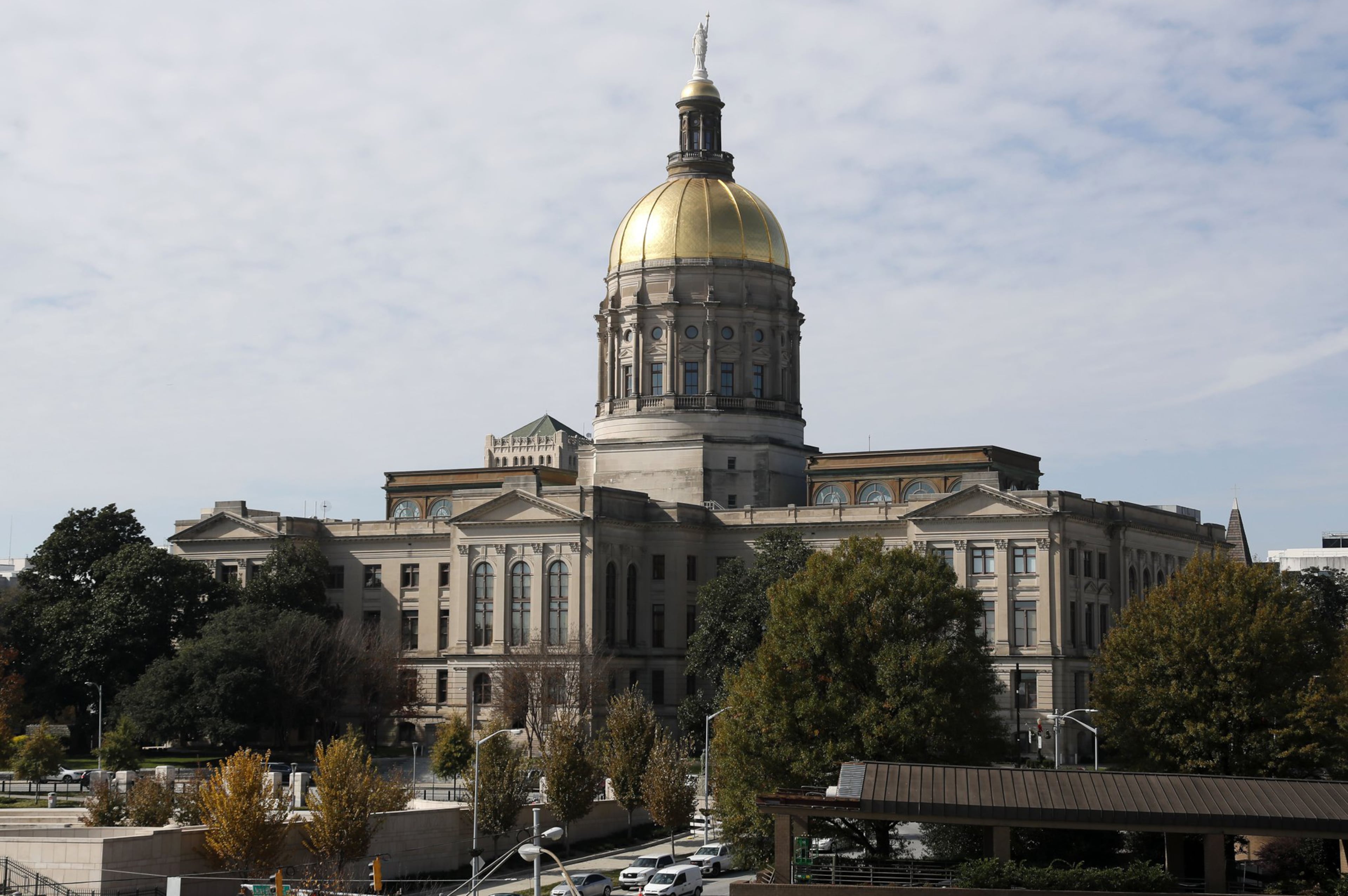How Georgia’s PSC races are already changing the midterm landscape

The Democratic sweep Tuesday of a pair of Georgia’s Public Service Commission seats marked the party’s first non-federal statewide wins since 2006.
But party strategists are more focused on another historic year as they build their case for the 2026 midterms.
In 1992, Bobby Baker captured a PSC seat, making him the first Republican elected to a statewide constitutional office since Reconstruction. Republican Paul Coverdell also narrowly won a U.S. Senate runoff.
At the time, some key Democrats dismissed those defeats as anomalies. Instead, they set the stage for a broader, but gradual, GOP realignment that would reshape Georgia for a generation.
More than three decades later, Democrats see echoes of that moment in the decisive wins Tuesday by Peter Hubbard and Alicia Johnson for the same commission. And Republicans aren’t shy about acknowledging they also see warning signs.
No one is suggesting the results alone transform the 2026 political map, when U.S. Sen. Jon Ossoff and every statewide office will be on the ballot.
But the 26-point thrashings offer an early indication of what messages are resonating and where priorities may be shifting.
“A lot of the conversation about the elections was about affordability,” Republican Attorney General Chris Carr said at the Politically Georgia forum this week. “You’re a fool if you don’t recognize that.”

Carr and Secretary of State Brad Raffensperger, both GOP contenders for governor, said at the forum that Republicans must emphasize tax relief, lowering household costs and creating economic opportunity to avoid further voter backlash.
“It was a referendum on affordability. And we need to address that,” Raffensperger said. “And the best way of addressing affordability is creating great-paying jobs.”
Another clear takeaway: Voters largely ignored the MAGA-tinged attacks labeling the Democrats “woke” or beholden to “DEI” — diversity, equity and inclusion — and instead responded to an argument that politicians weren’t doing enough to bring down rising power bills.
“There’s a through line as Georgians deal with a two-generation affordability crisis,” said Democratic Party of Georgia chair Charlie Bailey. “And we saw a rejection of Republican policies that benefit billionaires, big corporations and whoever the latest lobbyist was to buy somebody a bourbon and a steak.”
Republicans acknowledged as much. Commissioner Tim Echols openly second-guessed his own “full MAGA” approach.
“I want to give credit where credit is due here. They employed a strategy that had a single focus. And they were able to get folks looking at that power bill.”
‘A protest vote’
Hubbard and Johnson didn’t just run up the score in Democratic strongholds. They outperformed their party’s 2024 presidential vote share in all but two of Georgia’s 159 counties.
Twenty-two counties that backed Republicans in 2024 flipped blue, including historically GOP strongholds like Columbia and Paulding counties.
And Democrats would have won even without the votes from metro Atlanta’s five deep-blue counties — Clayton, Cobb, DeKalb, Fulton and Gwinnett — a point party strategists are emphasizing.
“When voters can feel the issue in their own homes, the message does the work,” strategist Dasheika Ruffin said. “Democrats leaned into that.”
Some Republicans warn that won’t easily translate into next year’s election, particularly if GOP candidates hone their economic messages.
Bill Adams, an 80-year-old lifelong Republican, crossed party lines to vote against the GOP incumbents. But he doesn’t intend to back any Democrats next year.
“This was a protest vote,” he said, “and apparently many others felt the same way.”
Other voters said their ballots were aimed at someone who wasn’t on the ballot.
“I know a number of people who have no idea whatsoever about what the PSC does or who is on it,” said Tim Christie. “But it was one way to protest Donald Trump.”
Fueling turnout
Democrats also reasserted grassroots strength.
Despite the decline of the political machine built during Stacey Abrams’ campaigns, Democrats have begun reassembling a grassroots network. They outdid Gov. Brian Kemp’s turnout operation, which spent more than $1 million on a race that typically attracts a fraction of that.
The Georgia Conservation Voters and allied groups emerged as major players, spending more than $3 million and contacting nearly 1.8 million voters through mailers, billboards, text programs and a digital campaign built around a blunt refrain: “They Raised Your Bill.”

The five-member PSC is the state’s top energy and utility regulator.
That success may have also pushed utility rates — once a wonky regulatory matter — into the upper echelon of campaign issues.
“Power bills just became one of the three top issues of the 2026 elections in Georgia,” said Jay Morgan, a lobbyist and former Georgia GOP executive director.
“The raw vote is not the headline. It’s how power bills drove the turnout and fueled the margins of the wins.”
For his part, Baker said he was closely watching Tuesday’s results. He said they reminded him of his own 1992 upset — but he cautioned against overstating the parallel.
These races, he noted, are “mainly pocketbook elections” and reflect frustration over rising rates.
“I don’t think they signal a major shift in Georgia politics like they did in 1992,” he said.
Then again, he doesn’t begrudge Republicans for heeding its lessons. The last time a party underestimated a PSC election, it wound up spending decades in the political wilderness that followed.



